Oriental Region, Morocco: New Tourism & Technology Region in Morocco
Oriental Agency, Director, Mohammed Mbarki
the Oriental region is great to live, invest and work in!
Interview with Mohammed Mbarki, Director of Oriental Agency
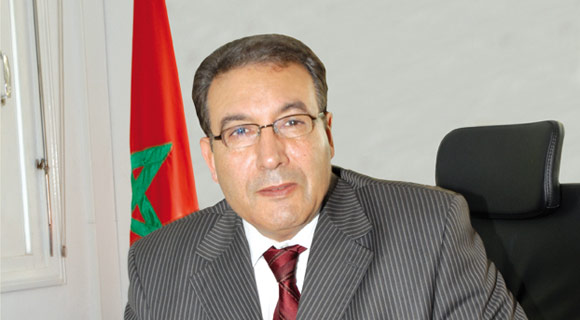
Could you give us a general idea of the Oriental region? What makes it unique?
It is very vast. It spans more than 83’000 km2 and makes up 12% of Moroccan soil. It is located at the East of the country and has 2 neighbors: Algeria and Europe (Spain in particular) via the Mediterranean. The region benefits from a choice location: it is at the center of what we call the “Euro-Mediterranean” area, in which North Africa is included.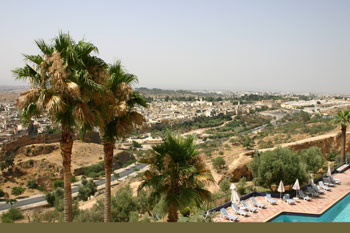
The region had an important role in the Kingdom’s history. It has always been at the junction of East-West and North-South roads. The King Mohammed VI said in his famous speech on the 18th of March 2003 – which was the founding act of development in the region – that the region was like a bridge between North, South, East and West, and that this role should be preserved, as well as the region’s diversity.
The region’s Mediterranean coast spans more than 200km; and the sea is almost 600km deep over there. If you cross the region, from the Mediterranean to the Oasis of Figuig – Europe’s nearest oasis – you will encounter all sorts of climates. Sea, mountain – numerous prehistoric sites, and the Taforalt site, where a prehistoric man was discovered – dunes, oases; you will go from very modern areas to Bedouin tribes that have maintained their traditional way of life.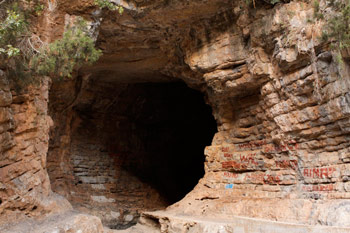
This is what I mean by ‘diversity’.
the Oriental region is great to live, invest and work in!
The region benefits from a real authenticity, as it has not been reached by tourism during the past 30 years (which has somewhat reduced the cultural heritage of other regions). It is opening up to tourism now that the sector has grown more aware of environmental matters. The oasis of Figuig has an important historic heritage, linked with Leo Africanus, and had an important library at that time.
The fame and international recognition of Oriental region is gaining momentum thanks to its brand new seaside resort of Saidia. Are you developing other forms of tourism, especially aimed at the outback?
Tourism has changed during the past few years. Certain tourists are seeking authenticity; they want to discover and meet people from a different culture, and they don’t want this discovery to be artificial. The Oriental region, just like Morocco, has a tradition of tolerance and openness. We like to welcome people. But the region’s landscape and potential for discovery makes it unique. It is a truly beautiful and hospitable region. 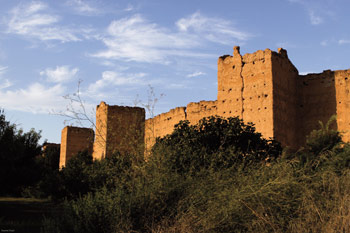
Its spirit is well illustrated by a poem from the oasis of Figuig: “O Stranger, enter without knocking, as I will recognize you by your step.”
What are the advantages of the region for the local and international investor and why should they choose Oriental over other regions in Morocco?
Oriental is indeed one of the regions in Morocco. Therefore, it offers full regulatory, administrative and fiscal advantages, to encourage and welcome new investments. At the same time an investor will find efficient and existing public utilities, infrastructure, human resource, social security, efficient health care, security, and everything pertaining to the sound investment environment.
The region has special characteristics that provide a variety of advantages to excel in specific niches such as solar energy, technology and others. For instance, the new regional offer includes TechnoPole, a zone close to Oujda airport, dedicated to new technologies, clean energies and offshoring, with a promising cleantech. 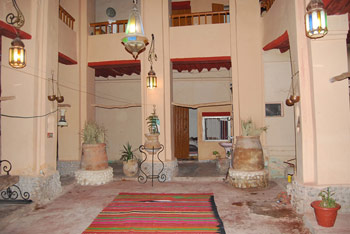
Also, naturally situated in the heart of the agricultural part of the region, the Agropole of Berkane, a zone dedicated to agro-industrial companies that includes a center for quality and another center for R&D is being developed.
Close to Nador, you will find an industrial park with a business incubator and support services (logistics in particular) suitable for “non polluting” SME/SMIs, which offers excellent conditions for startups to establish and develop their business. These programs commence being marketed this year (2011), offering exceptional advantages to the investors.
Lastly, the Oriental Region has well-trained, plentiful and competitive human resources, thanks to advanced learning programs aimed at specific industries Oriental is developing. Our cities are being renovated and new construction sites open every day in order to upgrade the urban environment.
We sum it up in one powerful statement: the Oriental region is great to live, invest and work in!
The region has plans for economic growth. Of course it needs to be competitive, as all other regions have similar goals. What are the region’s advantages in this regard?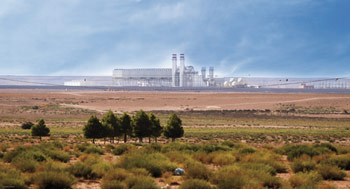
Morocco has decided to invest in all sectors in which Moroccan regions are privileged and have prospects for international competitiveness. We have created technology parks specialized in various sectors. For example, the solar-thermal combined-cycle gas-turbine power plant (472MW), as part of Morocco’s Solar Plan.
The plan also involves a 400MW solar power plant. This grants the region a big potential in terms of electricity. We have a strategy to invest into clean energies and industries. The cleantech cluster in Oujda is specialized in these matters.
Solar energy will be an important sector as well as wind power with a big windmill park near Taza (which borders the region). Investment is welcome to help this sector grow through the technology cluster in Oujda. In the field of tourism, a seaside resort is being created in the North of the region in the Nador Lagoon (Marchica).
It is a very large lagoon in the Mediterranean. We are targeting future tourism with an eco-friendly approach, with the project to create small cities around the lagoon that will have a zero carbon footprint. Rediscover nature would be our motto. We want nature to serve economic development without being destroyed in the process. 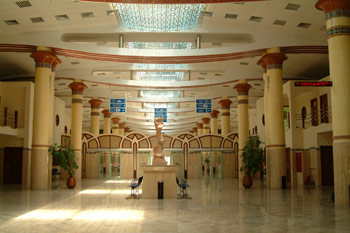
Soon, when the Algerian border is open, you will benefit from a new flow of tourism. What impact would this have on the region?
The Algerian border being closed is not within Morocco’s jurisdiction. The King has made a plea for the official opening of the border in several speeches but never got a reply. Since the independence, the border has been more closed than open. It is anachronistic. Of course the periods where the border was open has had an important impact on the region.
The King’s speech on the 18th March 2003 has cast a new light on the region’s geographical situation by presenting it as an important place on the North-South axis, rather than a dead end at the Algerian border.
This new vision allowed the region to fully promote its potential. The region has rapidly developed since then, and has gone up considerably in the national ranking of Moroccan regions. The King’s 22 follow up visits in the region have speeded up the development process. In answer to your question, it is obvious that the region would develop more rapidly if the border were open; but it has already overcome this obstacle from an economic point of view. 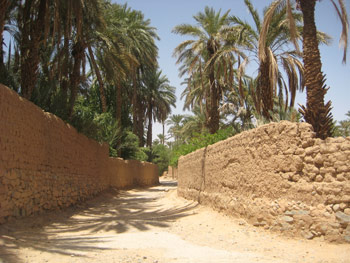
Given the region’s unexploited potential, how come expatriated Moroccans haven’t rushed into investment so far?
We are very interested in the Moroccan diaspora. We visit European cities where the Moroccan community is important on a regular basis. The Oriental region is the Moroccan region with the biggest number of expatriates. They are well integrated in their new country, while remaining very attached to their origins; and they are willing to take an active part in the region’s development. They contribute by investing as well as offering their skills.
We have prepared everything to welcome investment. We have a regional fund for development that can be used to help and accompany investors, as well as a highly effective regional center for investment that supports small and medium industries and businesses. Investment is a priority. Many sectors are to grow: agro-industry, tourism, services, etc.
You asked why investors don’t rush to the region. From a realistic point of view, we still have a lot more work to do for that to happen. Our strategy is to have a local approach to regional actors, and improve communication. Poverty is still a major problem in the region, and the poor population should be an active factor in the region’s development.
Each year, various organizations such as the CNSS (public social insurance), education experts, employment experts, microcredit experts from the Banque Populaire, etc. group together on a visit to remote villages of the region to expose what possibilities they have to start a project or a business. 600 projects are currently under way, and some of them are already successful. They are in collaboration with many people: the INDH (National Initiative for Human Development), the Mohammed V Foundation, local councilors, etc.